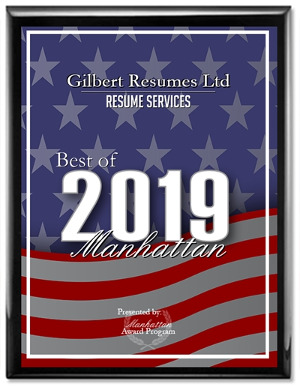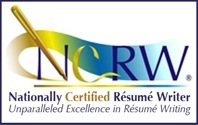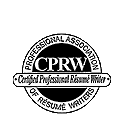The 11 Biggest Mistakes Older Job Hunters Make
{Click here to read the original article on Forbes.com.}
Guess what? Older workers get jobs. It might take a little more time for a myriad of reasons from your salary demands to your own lack of imagination about the kind of work you’re applying for, but employers really aren’t out to shun workers over 50.
They do want grown-ups in the shop. We tend to be loyal, even-keeled, reliable. We bring intangibles to the workplace from experience to a vast network of connections. These are not something the whippersnapper cohort can even dream to do at this stage in their lives.
Sure there are all the niggling concerns many employers have, even if they don’t verbalize them, like you aren’t going to play well with younger workers (or bosses). You will only want to do things the way you have done them in the past. You’re a Luddite when it comes to technology. And shockingly, probably to you anyway, that you don’t have the grit anymore to really bring the energy and enthusiasm to the job.
And, let’s be honest, for some of you, they’re spot on. But I have realized from interviewing and counseling dozens upon dozens of jobseekers who are over 50 trying to find work in a variety of fields that the reason you don’t get tapped is because you are guilty of making core mistakes. I doubt any of these no-nos will startle you, but they are all, and I mean it, all worth remembering.
Here are my top 10 mistakes that over 50 job seekers who successfully find great jobs don’t make.
1. You’re LinkedIn-less.
If you’re serious, about job-hunting today, this is non-negotiable. A recent study by the Society for Human Resource Management found that 77 percent of employers are using social networks to recruit, a sharp increase from the 56 percent who reported doing so in 2011. Among the recruiters using social tools, 94 percent said they use LinkedIn.
Step up to the plate. Put together a profile. If the whole idea makes your fingers freeze, ask someone to help you who has done one. What’s cool is you can change it all the time, put on videos of speeches you’ve done, PowerPoint presentations, a video resume even.
Pick a great photo. LinkedIn profiles without headshots are like empty, soulless vessels. What the heck are you hiding? And please choose one that’s not blurry and shows you smiling, or at least looking approachable, energetic, and not one from a decade ago. The jig’s up when they meet you, and it makes you look silly to have tried to mask your age.
Write a professional headline that runs below your name on your profile. Make the most of those 120 characters. Tailor it to say exactly what you do, or the kinds of jobs you’re seeking. For instance, mine says, Expert/Author/Speaker. LinkedIn has a link for you to click and see what others in your industry are using. I recommend that you review profiles of other professionals in your field and see how they’ve portrayed their work. You might get ideas of keywords to enter in your description.
Search for people you know who work at firms where you might want to work, or you know are hiring, and send an invitation to connect to them. Ask if they can lend you a helping hand in some way.
2. Your resume sucks.
Sorry to be so blunt. You haven’t had to show anyone a resume in years. I get it. So you throw something together and think it’s clear to anyone who reads it how amazing you are, how top of the line, award-winning spectacular. But not everyone even knows the significance of your accolades.
The key is to rein your resume in to no more than two pages. Most recruiters will scan it in 20 or 30 seconds. Choose a traditional font, such as Times New Roman, in 9- to 12-point size, and use black type on white paper. Other fonts to consider are Arial, Calibri, Cambria and Tahoma.
Stick to the most recent 10 to 15 years of experience. Avoid giving dates when it comes to decades-old experience – and only include jobs if they’re relevant to the work you’re currently seeking. There’s no need for college graduation dates. Match the experience and skills you cite in your resume with the exact skills employers say they’re seeking in their job posting.
Your resume must tell a story, not provide a list of job titles and dates. Slide in short snippets such as you cut costs by a certain percentage, increased sales by 25 percent, or delivered project months ahead of schedule.
Proofread your resume. Of course, you do this, but it’s so easy to miss something. Print it out. Read it again the next day. Read it out loud. Ask someone else you trust to read it. Sloppy mistakes make it look like you’re careless and aren’t that interested in the job.
Finally, before you hit the send button on any electronic communication with a potential employer. Read your note again, out loud, just as you did with your resume. Beware of auto spellcheck programs. Those instant corrections can be really wrong.
3. You’re too cool to look needy.
Most people don’t really use their network to get a job. And the truth is people hire people they know, or people they know. This has been the case for ages. It’s human nature and the fear of making a bad hire makes employers extremely risk adverse, particularly in today’s work environment.
You have got to pick up the darn phone. Ask for help and advice. Networking, as I like to say, is just one letter off from not working. If you don’t establish any personal connection to the company, it’s probably a waste of time to even fill out the application.
Don’t be reticent about digging way back into your network even to colleagues you worked with three decades ago, or high school classmates, even parents of your kid’s friends. What’s the point of not taking advantage of all the years you have spent in the world – and all those whose lives have intersected with yours who might be in a position to help you?
Unless you were a real jerk to them, or incompetent, most people will want to help you. It makes them feel good. I love it when I can connect people to a possible opportunity, and I suspect most others do as well.
4. You are lazy.
Nope, no one is going to come looking for you. Get out of the door. If there’s a particular industry you’re interested in, join an association connected with it and seek out volunteer openings.
Go to industry and professional meetings and conferences. You never know who will know someone who is hiring. And many college and university career centers are reaching out to alumni to help too. You may be able to tap into career counseling, workshops on resume writing, job fairs, and retraining programs. Your nearby community college may have offerings, too.
5. You think you’re special.
Many of us hit our boomer years and we’re, well, cut from our own cloth. We can’t be pigeonholed into the daft job descriptions that employers post these days. Or the job that’s open is too narrow, too restrictive, something you were doing a decade or more ago.
And the pay is surely not high enough for all our experience. That may be true. And that’s hard to ignore. But perhaps there are ways you can ultimately negotiate for more flextime, vacation days, and other perks that can shore it up for you without losing face.
Employers know when you are looking for a job below your means. A new CareerBuilder survey of 5,518 job seekers and 2,775 hiring managers found that 18 percent of employers will eliminate candidates whose salary expectations are too high.
That said, I recommend that you don’t take the job description so literally. In reality, all jobs are a work in progress. A new video news organization may for instance, have an opening for an editor, but you’re an editor and a field producer. Don’t shy away from going after it if you really like the company and think it has the future to take off in the marketplace.
My experience is that there’s a good chance once you get in the door, you can make it your own and grow the position to fit your talents. Most jobs are organic. Nothing really is black and white, and if you can bring more to the party than an employer is bargaining for, all the better. Be willing to see future possibilities.
6. You don’t bring your “A” game to the interview.
You believe you’re more qualified than the person who is interviewing you. You cop an attitude, maybe without even realizing it. You might try to tell them why their job description is faulty in some way, or unrealistic, even.
If the person interviewing you is younger, you can come across as condescending or professorial. You might be resentful that you’re actually in this awkward position of having to come to their office hat in hand.
You don’t take the interview seriously and it shows because you haven’t done your homework on the person who is interviewing you, the company, the industry, its competitors. You think you’re there for them to get to know you, when really they want you to show them how much you know about them.
Prepping yourself isn’t that hard to do today with Google searches and all the other Internet sleuthing at your finger tips via employer web sites and Google Alerts.
You’re nervous and too proud to admit it, but it shows when you sit down for the interview. Since it has been so long since you’ve interviewed for a job this is to be expected. Calm down. Practice mock interviews with a friend (someone younger even). Videotape it, so you can see how to tweak your performance. Always remember to be yourself, sincere, straightforward. Keep it conversational. Focus on the company’s needs, not yours.
7. You look like hell.
If you aren’t physically fit, get with it. People will judge you by how you look regardless of how politically incorrect that may be. When you’re physically fit, it sends the message subliminally that you’re up for the job. You have a certain vibrancy and energy that people want to be around. I don’t mean you have to run a fast mile. You just need to be in shape. Eating a healthier diet will help you, too. You’re selling the entire package of who you are – not just your work experience and talent.
And, of course, get a great interview outfit, haircut, and manicure, shine your shoes and all that other superficial stuff. Always overdress.
8. You just don’t fit in.
You can have all the skills and experience in the world, but if you don’t fit into a company’s culture, you aren’t going to get the job and frankly, why would you want it? Consider this, 23 percent of employers will dismiss a candidate who is not a good fit for their company culture, according to CareerBuilder.
But my question is why would you want to work for a company that isn’t simpatico with your own values? You should check up on the employer to see, if, in fact, you can drink their kool aid cheerfully.
Be choosy about where you apply. Scattershot is not a proven method. Save yourself the rejection when a prospective employer figures out what you already know. You aren’t their type.
A web search for articles you can read about the company is step one. Visit the career help site, Themuse.com and GlassDoor.com, a site that runs write-ups by current or former employees. If the news is good, fantastic, it will ramp up your enthusiasm for your interview. If it sounds like a crummy place, to work, don’t waste your energy. There will be something better down the pike.
9. You wait for the phone to ring.
If you’re unemployed now, do something. Try volunteering for a nonprofit organization or do pro-bono work in a job that uses your skills.
Volunteering lets you network and potentially get your foot in the door with a future employer. It also fills in gaps of time that you’ve been out of work in your resume. It keeps it alive. And you never know, you might just meet someone who will lead you to a job opening elsewhere.
Then too, According to LinkedIn research, 42 percent of hiring managers surveyed say they view volunteer experience as equivalent to formal work experience. Plus, it’s good juju when you help someone else.
Search for prospects at VolunteerMatch.org, HandsOnNetwork.org and AARP’s Giving Back. Seek out nonprofits that need your particular professional expertise through Taproot Foundation, and the Executive Service Corps. Bridgespan.org runs an online job board for nonprofit positions. Idealist.org has a searchable database of both volunteer and paid positions.
10. You’re stuck in a moment and you can’t get out of it.
I love this line that Bono sings in the U2 song “Stuck in a Moment.” I think we can all relate to that conundrum. When it comes to landing a new job, so many people I talk to are so stuck in the idea that they need to replace the job they had before.
Not so. Look at your skill set and past experience as transferable to lots of different challenges and fields. If you’re switching industries, you’re redeploying skills you already have in place. Reframe your experience. You’re selling how your knowledge base and skills can solve business problems in the future regardless of the employer or even the specific job description.
11. You have flat-lined intellectually.
When is the last time you bolstered your brain by learning something new, really new? If you can show a hiring manager that you’re taking classes, a workshop, working toward a professional certification, it shows that you are not stuck in your ways and are willing to learn new things. It’s smart to look at the specific requirements of the jobs you’re applying for. If you don’t have the prerequisite proficiencies, add them right now. Sure you can probably dance your way in an interview by saying you are a fast learner, but I recommend that you just take the time and check it off your list. You might even be able to take a course online.
Finally, here are some ideas of where to look for employers that value older workers. AARP offers this list of the best employers for workers over 50: 2013 AARP Best Employers for Workers Over 50. Also check out the websites that are geared to older workers such as RetirementJobs.com, Retired Brains, Seniors4Hire and Workforce50.com.
Comments are closed.







